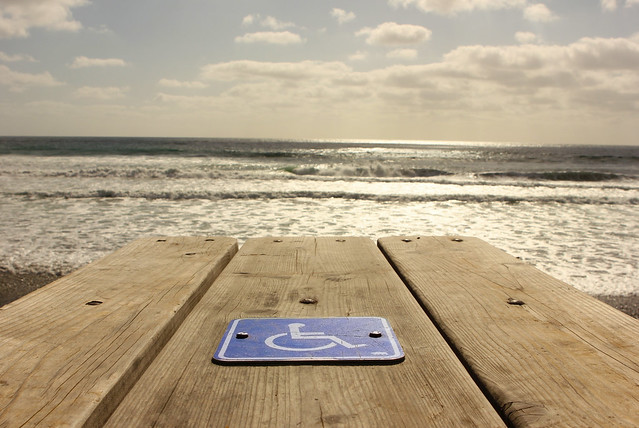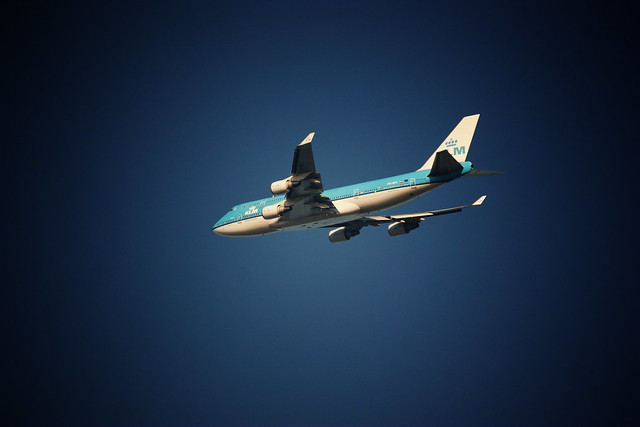Whether you have mobility issues, sensory impairment or a disability yourself, or you care for someone that does, you’ll find our guide to accessible travel an essential read! It is full of must-know facts about accommodation and travel as well as a run-down of top destinations for barrier-free travel around the world.
Accessible tourism is a big issue. It is a movement that strives to improve the accessibility of tourist information, transport and services for people with all sorts of access needs. This can be anything from creating step-free environments at airports for those with mobility issues to ensuring that visually impaired individuals can access audio information online. A section of society that is certainly not in the minority! In fact, worldwide, the accessible tourism market is estimated at 1.3bn people, 2.2bn if you count friends and family that go along on holiday too.
There are many dedicated travel operators that offer accessible holiday packages – more on that later on, and accessibility in general is improving in many countries, but there are still lots of obstacles when it comes to fuss-free travel, especially if organising a holiday on your own. So – what needs to be considered?
Staff Knowledge
Always assume that whoever you are talking to knows nothing about your impairment. Maybe it is not obvious, and even if the staff are aware, they still may not know what you need as an individual. Explain what you require at every opportunity and ask for confirmation of specific arrangements in writing so you can be sure that your request is on record.
Your Rights
In the UK, certain rights to access exist and there is legislation in place that says that reasonable access should be provided for people with accessibility issues and that no person should be refused travel due to accessibility issues unless it constitutes a danger to other passengers. The same cannot be said of other countries, so don’t presume access to public transport is a right – check first with the relevant travel authorities at your chosen destination.
Planes
You have certain rights in the UK under the Equality Act 2010 and also European Union law – airlines cannot refuse you travel (that includes airlines outside the UK travelling to destinations within the EU), but it is advisable to give plenty of notice to ensure that all arrangements are in place for easy access to your flight. If you need assistance at the airport, to check in bags or retrieve luggage from baggage for example, or if you will need help on board the plane, airline operators appreciate knowing this when you make the reservation, and certainly no later than 48 hours before departure.
Bournemouth Airport prides itself on being access friendly and has been hailed as a Disabled Friendly Airport by Reduced Mobility Rights for being virtually step free and providing disabled parking as close as possible to the terminal. You can find out more about their access-friendly policy on the Bournemouth Airport website.
Some questions that you might want to ask if you require a wheel chair include:
- Can wheelchairs be brought on board? If not do special arrangements need to be made?
- If you have an electric wheelchair – Are only dry cell batteries permitted on board?
- If the airline provides you with a wheelchair – Can it be used to access the on-board toilet?
- Are there steps or tunnels to negotiate? If so will someone be available to help me get to the boarding gate and on the plane?
Trains
All train operators in the UK are obliged to make sure that people with mobility issues have reasonable access to rail travel. Specifically, this means travellers can expect to:
- Get on and off trains safely and without unreasonable difficulty and do so in a wheelchair if needed.
- Travel in safety and reasonable comfort and do so while in a wheelchair if needed.
Eurostar has designated wheelchair areas for passengers, but for travel overseas it is wise to find out via the relevant tourist information board which stations are access-friendly.
Germany’s rail operator DB Bahn have a commitment to aiding barrier-free travel, you can find out more on the DB Bahn Barrier-free Travel page. Rail Europe have an informative Rail Guide for Disabled Travellers with specific information about stations and destination throughout Europe and facilities available on board. If a rail holiday is more you cup of tea, then tour operators Railbookers are a fantastic option.
Automobiles
Whether taking your own car, or an adapted car hired through a Motability scheme, there is no denying that it is easier to get around in an automobile when travelling abroad. Blue badge holders can continue to make use of parking concessions in Europe as they do in the UK, but should be aware that the rules will vary slightly on these rights from one country to another. There is a European Parking Card for People with Disabilities available from the Mobility and Inclusion Unit of the Department for Transport, which states your parking entitlements in the language of the country you are visiting. For more information visit www.dft.gov.uk
There will be adapted car hire available in the most popular destinations, for example if you are heading to the USA, check out Wheelchair Getaways for accessible vehicle rental.
AccommodationThere are a lot of things to consider when booking accommodation from whether there are ramps instead of steps, rooms with wider doorways or reception areas with induction loops. As everyone has unique requirements, it is a good idea to write down a list of essential things that any accommodation has to have for it to be accessible to you so you can ask about these at the time of booking. Some simple things to consider include:
Step free entry to hotel
Lift to all levels
Grab rails
Alarms
Level access showers
Raised toilets
Shower chairs
The Good Access Guide has a select list of access-friendly airport hotels throughout the UK. There are also a number of specialist hotel sites that list access-friendly hotels around the world, which include essential advice on accessibility, facilities and equipment available such as Disabled Access Holidays and Disabled Holidays 4 You.
Location
Once you have found an access-friendly hotel, you need to make sure it is in a suitable location. Is the local area relatively flat? Do the pavements nearby have a small drop? Are there amenities nearby? Where is the nearest bus stop, taxi rank or train station?
Knowing that the little things like these are not a problem can make life a lot easier when you get to your destination, and ultimately make your holiday a lot more enjoyable. Also, if you are not after a secluded holiday, and you’d like to meet new people, you’ll want to make sure your accommodation is close to visitor attractions, bars and restaurants.
Medicines and Customs
What many people with pre-existing medical conditions want to know when they travel is what happens if you have lots of medication that you have to take with you, or what if the medication contains a controlled drug. Here’s what you need to know:
All essential medicines have to be checked by security
- Any medicines under 100 ml must be in their containers and in a clear bag
- Medicines over 100 ml must be accompanied by supporting documentation from a relevant qualified medical professional
- Medicines over 100 ml must also have prior approval from the airline
Accessing disabled toilets and specialist equipment
If you require access to disabled toilets in Europe you will need to send a copy of your disability passport or a letter from your doctor when ordering a European Disabled Toilet Key. These can be used for access-friendly toilets in many cities through Europe, and on the Autobahn in Germany. Contact CBF Darmstadt for more information.
If you will need to hire specialist equipment, you’ll find that many of the larger cities and popular destinations will have local mobility centres offering amongst many things scooters and wheelchairs, including beach wheelchairs. Some beachside locations also offer lifeguard assistance. Contact the local tourist information centre for a list of providers.
Insurance
People with pre-existing medical conditions, and older people who are considered a higher risk often find it difficult to get travel insurance.
This is because many travel insurance providers do not offer customers the opportunity to declare the conditions and pay to have the exclusion lifted. Cheaper policies in particular will have very restrictive cover for pre-existing conditions to keep the overall premiums low – but that can leave those with even very mild conditions underinsured.
On the other side of the coin, some providers specialise in cover for high-risk pre-existing conditions, but this can lead to a higher premium for all of their customers, including those with moderate or mild conditions.
WorldwideInsure.com’s policy however is different, because we have an in-house screening service, our customers can obtain a quotation and screen their medicals within one call; the in-house screening programme is flexible and responsive, able to adapt to introduce new conditions or response options. We don’t even need to see medical certificates of documents to be able to provide insurance.
This means that if we are able to cover a condition, we do not place additional restrictions or high excesses on the insured person. So a customer with medical conditions can enjoy the same freedom and standard excess on a policy as someone who has no pre-existing medical conditions.
Our travel insurance options for travellers with pre-existing medical conditions include:
Annual (with options covering 31, 45 or 62 days p/trip) for individuals, couples and families
Single Trip (1-94 days) for individuals and families
Longstay (2-18 months) for individuals only
Access-Friendly Destinations
Germany
The country is currently promoting “barrier-free” travel with access-friendly rail travel on DB Bahn. There is plenty of useful information for travellers to read to make sure that getting from A to B is easy. We suggest contacting Rail Europe to book tickets from London to Germany.
China
In Shanghai most of the popular sights are accessible to people with mobility issues. Also The China Guide offers customised itineraries, trip and excursions.
Costa Rica
Carara National Park has just opened a universal access trail in the rainforest, just one of the many places in the country that is fully accessible, and there are many more that have been adapted to be wheelchair friendly and designed with people of all abilities in mind. Features include signs in braille, audio stations, accessible toilets and sensory sculptures.
USA
If you like extreme sports, then Utah is the destination of choice – it is currently promoting itself as an accessible tourist destination, offering trips to the national parks to take part in skiing, rock climbing and white water rafting. Trail Link is a good place to start planning activities!
Canada
The infrastructure of the country is great for the visually impaired – it has an easy to navigate environment and the government appears to be a lot more aware of the obstacles those with impaired vision face when travelling. Planat is an excellent website that rates accessibility for a number of activities and attractions around the world, with the main focus on Canada.
Caribbean
To make the most of the sun and sand Virgin Holidays have a Special Assistance Service that guarantees fully accessible accommodation, adapted rooms and free use of beach wheelchairs.
Cruises
If taking to the seas on a five star floating hotel is your idea of a holiday, then Disabled Cruise Club not only offers holidays that meet all the accessibility criteria automatically, but they also have a fabulous guide that answers all the questions you may have about staying on a cruise ship.
For more information about barrier-free travel, access friendly holidays and general advice about heading overseas, you might find these resources useful:
https://www.tourismforall.org.uk
http://www.disabledholidays4u.com/
http://www.wheelchairtraveling.com/transportation/
Bon Voyage!



![Smooth Entry by SHUN [iamtekn] Smooth Entry by SHUN [iamtekn]](https://farm4.staticflickr.com/3134/3127102775_c20fdeb689_z.jpg)